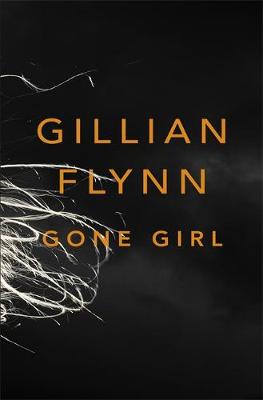Reviewed by girlinthepages on
At its core, Gone Girl was a tale of two deeply unhappy, unsatisfied people. Told with multiple narrators, the novel chronicles the marriage of very unreliable narrators, each with hidden agendas that simmer beneath the surface. After seeing the book raved about so heavily, I was surprised to find that the first part is slow. The premise of the book kept me going, but it seemed to be a sad, yet predictable tale full of flashbacks of what was probably a husband murdering his wife for insurance money. But I implore you to keep on with the text, because part two throws a curveball to readers that I absolutely did not see coming. It changed the entire pretext of the book, made me think twice about everything that I read, and really proves that Gillian Flynn is a master of laying down carefully crafted clues and scenarios.
Despite this plot twist (and many others that followed it), this book underwhelmed me in some respects. Initially the pacing was what threw me off (I mean the title really makes it seem like it’s going to be a Dangerous Girls-esque courtroom drama). At times keeping track of all of the peripheral characters, especially everyone involved in the investigation, was confusing, And the ending, while pretty unexpected, was also a bit far-fetched for me as a reader to really get on board with and buy into. Reading about the intricate details of Nick and Amy’s tenuous marriage became tedious after a while, and at times the book felt almost as if it were trying too hard/ironically to be profound and “meta.” (Example: the bar that’s named “The Bar"). In some instances it just felt overwritten, too much detail and too much narrative, and just overall trying too hard, when it already had an intriguing plot and great twist.
Despite my disappointment with some aspects of the book, I will fully admit to not being able to put it down once I hit about 100 pages. As I grew addicted to finding out the resolution, I came to be disgusted by the vices and despairs of these deeply troubled characters (they were both antagonists in a sense), yet also came to find them fascinating and found myself justifying actions for each. This is where I found Flynn’s true talent to be, that she could tell a story about such abhorrent individuals, everyday individuals, and yet write them in such a manner that it evokes sympathy or justification out of readers.
Overall: Gone Girl was a slow-burning mystery that read differently from what was promised, but delivered great plot twists and intriguing characteristics in deeply unreliable narrators. It’s worth the read, but I wouldn’t classify it as a “psychological thriller.”
Reading updates
- Started reading
- 21 September, 2014: Finished reading
- 21 September, 2014: Reviewed
